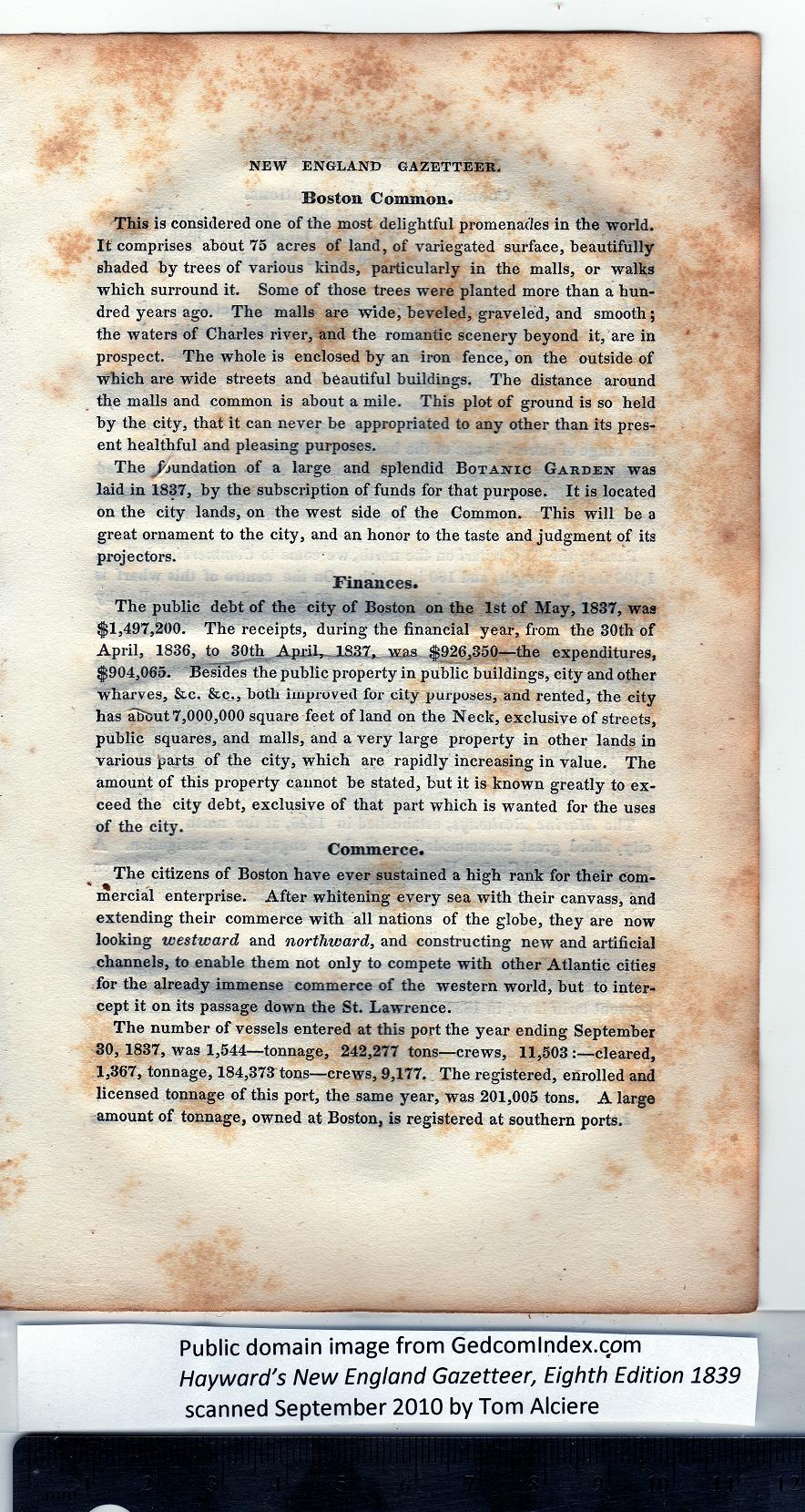|
NEW ENGLAND GAZETTEER.
Boston Common.
This is considered one of the most delightful promenades in the world.
It comprises about 75 acres of land, of variegated surface, beautifully
shaded by trees of various kinds, particularly in the malls, or walks
which surround it. Some of those trees were planted more than a hun-
dred years ago. The malls are wide, beveled, graveled, and smooth;
the waters of Charles river, and the romantic scenery beyond it, are in
prospect. The whole is enclosed hy an iron fence, on the outside of
which are wide streets and beautiful buildings. The distance around
the malls and common is about a mile. This plot of ground is so held
hy the city, that it can never be appropriated to any other than its pres-
ent healthful and pleasing purposes.
The foundation of a large and splendid Botanic Garden was
laid in 1887, by the subscription of funds for that purpose. It is located
on the city lands, on the west side of the Common. This will he a
great ornament to the city, and an honor to the taste and judgment of its
projectors.
Finances.
The public debt of the city of Boston on the 1st of May, 1837, was
$1,497,200. The receipts, during the financial year, from the 30th of
April, 1836, to 30th Ajudl^J^SX^ was $926,350—the expenditures,
$904,065. Besides the public property in public buildings, city and other
wharves, &c. &c., both improved for city purposes, and rented, the city
has about 7,000,000 square feet of land on the Neck, exclusive of streets,
public squares, and malls, and a very large property in other lands in
various parts of the city, which are rapidly increasing in value. The
amount of this property cannot be stated, but it is known greatly to ex-
ceed the city debt, exclusive of that part which is wanted for the uses
of the city.
Commerce.
The citizens of Boston have ever sustained a high rank for their com-
mercial enterprise. After whitening every sea with their canvass, and
extending their commerce with all nations of the globe, they are now
looking westward and northward, and constructing new and artificial
channels, to enable them not only to compete with other Atlantic cities
for the already immense commerce of the western world, hut to inter-
cept it on its passage down the St. Lawrence.
The number of vessels entered at this port the year ending September
30, 1837, was 1,544—tonnage, 242,277 tons—crews, 11,503 :—cleared,
1,367, tonnage, 184,373 tons—crews, 9,177. The registered, enrolled and
licensed tonnage of this port, the same year, was 201,005 tons. A large
amount of tonnage, owned at Boston, is registered at southern ports.
PREVIOUS PAGE ... NEXT PAGE
This page was written in HTML using a program written in Python 3.2 and image-to-HTML text generated by ABBYY FineReader 11, Professional Edition.
|
